April 14, 2013
|
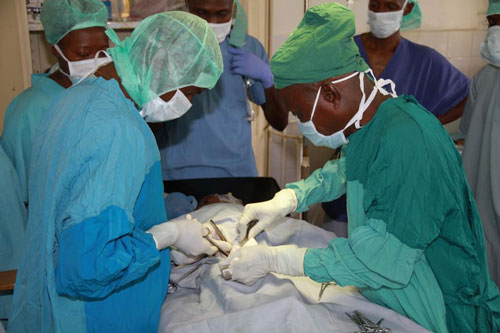
Dr. Martin Salia performing hernia surgery on a young boy.
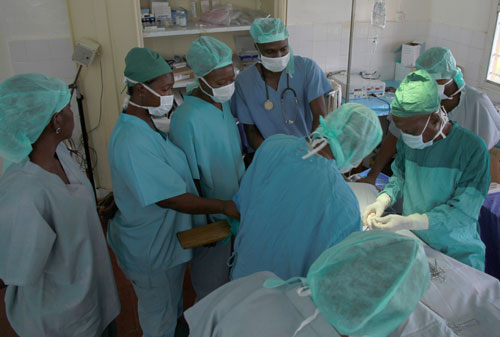
In the surgery room.
Jeff Bleijerveld, Director of Global Ministries
While at Mattru Hospital during my visit to Sierra Leone in February 2013, I was given permission to observe a surgery. They gave me a surgical gown to wear, and set up a chair in case I needed to sit down.
The surgeon was Dr. Martin Salia, a Sierra Leonean doctor who comes from a United Brethren background. He works at a hospital in Freetown, the capital city, but came to Mattru for strategic planning meetings about the future of Mattru Hospital.
He was assisted by Mr. French, another Sierra Leonean. Mr. French is just a handyman, not a medical doctor, but seems to be quite skilled at surgery. Before the civil war, he assisted Dr. Ron Baker in numerous surgeries, and he continued his involvement in surgeries during and after the civil war.
They told me they would be doing hernia surgeries. I learned that hernia surgery is the most frequent surgery performed at Mattru. I asked about it, and was told that there seems to be a genetic weakness for hernias among the Mende people.
I expected the patient to be an adult, but it turned out to be a little boy, just a year old, who was screaming his head off. He had a hernia the size of a softball. The little guy was from a village, and was terrified; he’d probably never been out of his mother’s sight. Now he was being brought into this operating room with bright lights and strange people wearing masks—all new to him.
Then, when they laid him on the table, he saw me, a white guy with blue eyes. He may have never seen a white person before. That did it. Quickly, the anesthesiologist said, “Let’s put him under ASAP.” They did.
The surgery was quite amazing thing to watch. All of the staff were Sierra Leoneans. Christian worship music played in the background. Before any incision was made, everybody stopped what they were doing and gathered around while Dr. Salia led them in prayer.
Also in the room were five student nurses. They assisted to a small degree, but mainly just watched. I was told that student nurses regularly attend surgeries. They brought a chair or me, in case I became lightheaded and needed to sit down, but student nurses ended up using it.
The surgery went well. They said the boy would be running around the village within a couple of days.
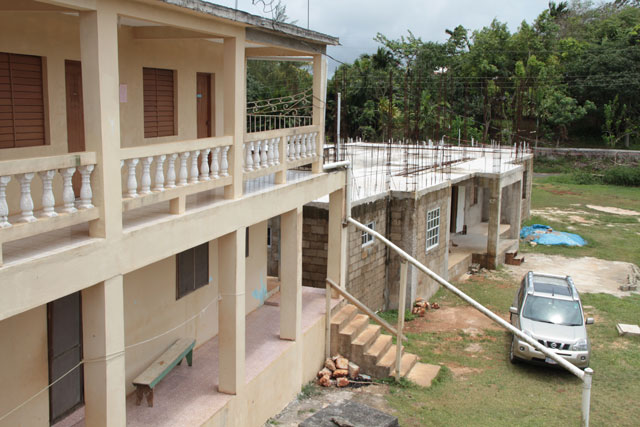

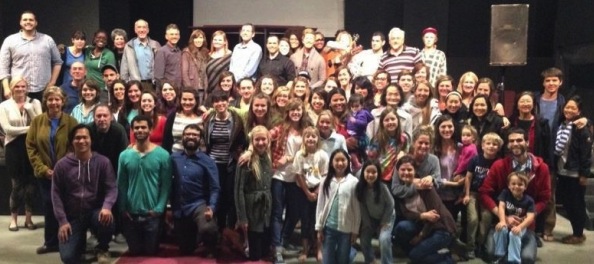
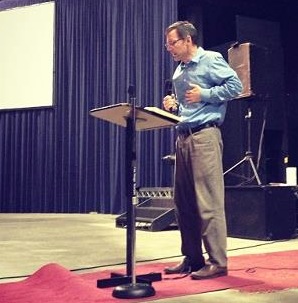
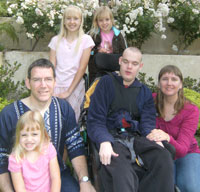
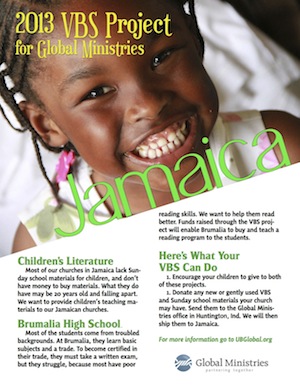 The Global Ministries Vacation Bible School Project for 2013 focuses on two areas of ministry in Jamaica.
The Global Ministries Vacation Bible School Project for 2013 focuses on two areas of ministry in Jamaica. Roger Reeck, a Global Ministries endorsed staff in Honduras, underwent surgery on Wednesday morning, April 24, on his left ankle. Roger and his wife, Marilyn, serve with Wycliffe Bible Translators.
Roger Reeck, a Global Ministries endorsed staff in Honduras, underwent surgery on Wednesday morning, April 24, on his left ankle. Roger and his wife, Marilyn, serve with Wycliffe Bible Translators.


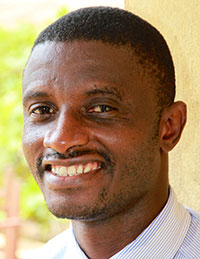 In February, I visited Sierra Leone to participate in strategic planning regarding Mattru Hospital. Also participating in those meetings was Dr. Martin Salia (right), a very skilled surgeon who works at a hospital in Freetown.
In February, I visited Sierra Leone to participate in strategic planning regarding Mattru Hospital. Also participating in those meetings was Dr. Martin Salia (right), a very skilled surgeon who works at a hospital in Freetown.